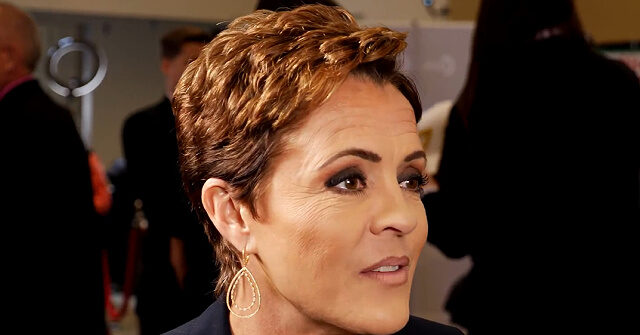“There is no quick fix, no silver bullet,” concluded the long-awaited BBC Workplace Culture Review, released on April 28, 2025. The 62-page report, commissioned by Change Associates, offers a nuanced examination of bullying, harassment, and whistleblowing at the century-old broadcaster. While some findings will reassure BBC leadership, others expose persistent challenges.
Prompted by former news anchor Huw Edwards’s guilty plea to charges related to indecent images, the review delivers a candid assessment of the BBC’s internal dynamics. Here’s what we learned from its key findings and recommendations.
A Few Bad Apples, Not a Toxic Culture
The report’s most striking conclusion is that the BBC does not suffer from a pervasive toxic culture. Instead, it points to a “minority of people who behave unacceptably,” whose actions disproportionately harm colleagues. The opening pages emphasize two sentences: “The BBC does not have a toxic culture,” and blame falls on individuals whose behavior goes unaddressed.
High-profile allegations against figures like Edwards, Russell Brand, and Gregg Wallace (both Brand and Wallace deny wrongdoing, with Brand asserting all relationships were consensual) have fueled public scrutiny. Presenters expressed embarrassment over being associated with colleagues whose “behavioral misdemeanors” dominate headlines. Yet the report raises questions about how much BBC leadership knows about these “bad apples” and whether they act decisively when issues arise.
One intriguing section describes presenters deemed “difficult,” who are “man-marked” by managers acting as buffers rather than addressing poor behavior directly. This reactive approach, the report suggests, fails to tackle root causes. Employees also reported limited contact with senior management, with some noting they see Director General Tim Davie more often than their immediate supervisors. The complaints process drew criticism as “traumatizing, unsupportive, and overly long,” breeding dissatisfaction.
Gray Zones: Where Is the Line?
The report introduces the concept of “gray zones”—behaviors that many consider unacceptable but may not violate the BBC’s code of conduct, which was strengthened following the review. “There is still not a shared understanding of what is acceptable,” the report notes, citing “shades of gray” that blur boundaries. Left unchecked, these behaviors risk pushing the line until environments turn hostile.
Generational differences exacerbate the issue. Younger Generation Z employees, shaped by movements like Black Lives Matter and #MeToo, have higher expectations for workplace conduct than older colleagues. The report questions whether senior leaders, who recall a time when throwing furniture or drinking on-site was tolerated, fully grasp today’s standards.
A section titled “Who Talks Straight With the Talent?” highlights a “power imbalance” that creates a “void” in addressing misconduct by influential figures. The lack of clear communication channels leaves junior staff hesitant to raise concerns, particularly when senior colleagues hold significant sway.
A Two-Way Street
While much of the report focuses on junior staff struggling with senior colleagues, it stresses that workplace dynamics are reciprocal. Jewish and Muslim employees, for instance, reported feeling unheard on concerns raised since the October 7, 2023, Hamas attack on Israel, a point the report flags as a failure of process.
However, the review also uncovers “unreasonable behavior” from employees toward managers, including abusive emails, aggressive meeting conduct, and inappropriate comments. Such actions, often paired with “vexatious claims,” trigger lengthy investigations that rarely yield results. The report describes this as a “unique” challenge for the BBC, compounded by some staff publicly criticizing the organization or leaking stories to the media.
Senior leadership doesn’t escape scrutiny. The report calls out executives who “seemingly coast,” resisting change and frustrating their teams. This reluctance to address longstanding issues undermines efforts to foster a healthier workplace.
Signs of Progress
Despite its critiques, the review acknowledges improvements. “Overall, I think the BBC culture has got better over the last ten years,” one interviewee said, citing behavior that aligns with broader societal shifts. Compared to a similar review a decade ago, prompted by the Jimmy Savile scandal, the BBC has made strides. Director General Tim Davie earned praise for hiring leaders with diverse perspectives, often from commercial backgrounds, to navigate the complexities of a 21,000-employee public institution under intense scrutiny.
Actions Over Words
Workplace culture reviews often face skepticism, and this one is no exception. “I do hope some change will come,” one interviewee said, “but this is hope, not expectation.” The phrase “zero tolerance” rings hollow for some, given high-profile cases where problematic behavior appeared to go unpunished.
The BBC has already acted on some recommendations, introducing a new code of conduct with specific guidance for on-air presenters and strengthening its disciplinary policy. A proposed “dashboard to monitor culture indicators” could provide ongoing oversight, while a partnership with the nascent anti-bullying body CIISA aims to bolster accountability.
The review looks backward as much as forward, but dwelling on past failures won’t silence cynics. For BBC leadership, the challenge is clear: sustained action, not just promises, will determine whether the broadcaster can move beyond its bad apples and gray zones.
The post Bad Apples, Grey Zones & “No Silver Bullet”: What We Learned From The BBC’s Workplace Culture Review appeared first on Deadline.




